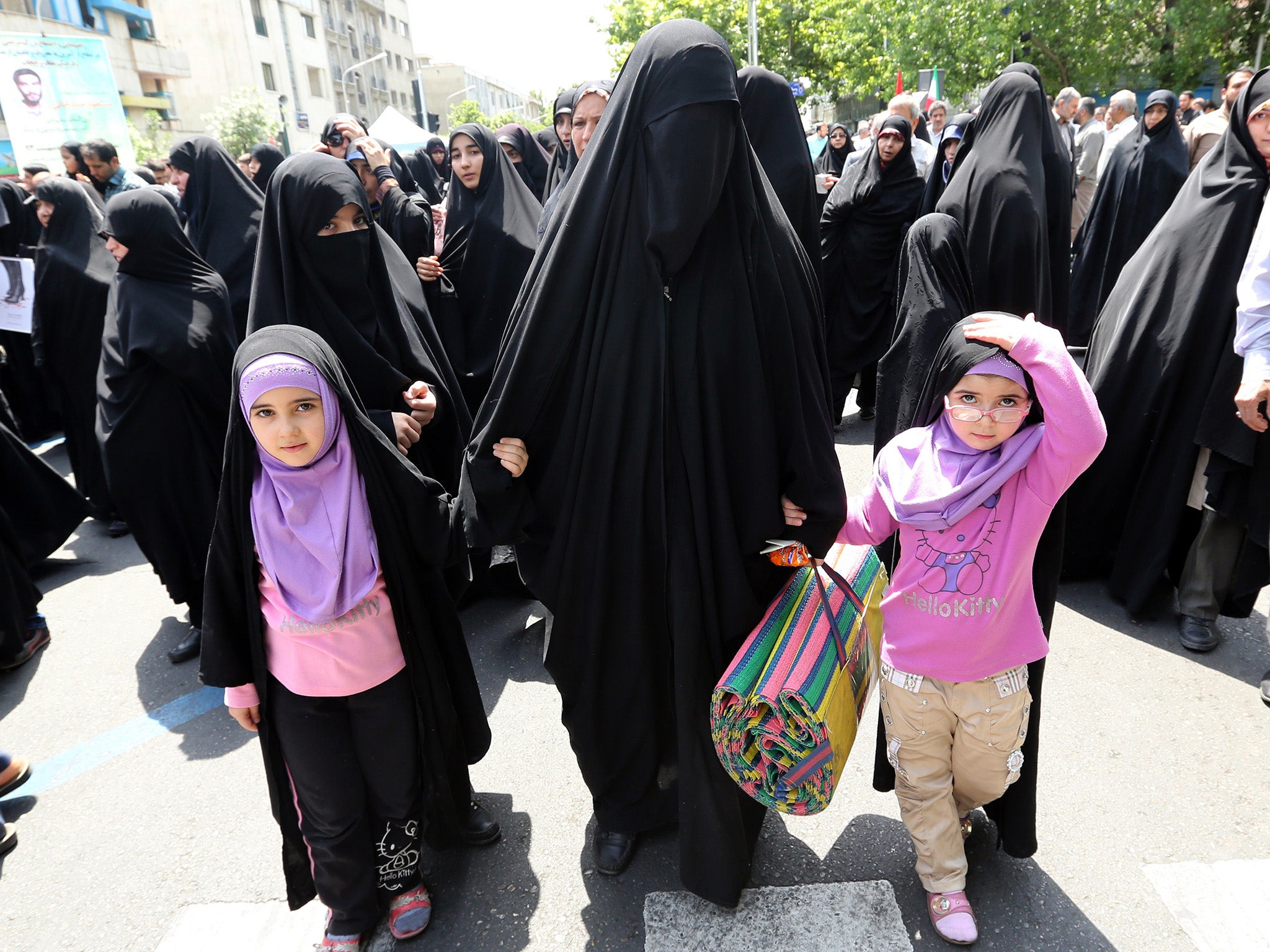Iranian women’s rights activists arrested after calling for end to ‘gender apartheid’ in open letter
‘In a world that women in most countries move side by side with men in science, economy, culture, arts, and politics, under the Islamic Republic women still fight for their basic human rights,’ says letter

Your support helps us to tell the story
From reproductive rights to climate change to Big Tech, The Independent is on the ground when the story is developing. Whether it's investigating the financials of Elon Musk's pro-Trump PAC or producing our latest documentary, 'The A Word', which shines a light on the American women fighting for reproductive rights, we know how important it is to parse out the facts from the messaging.
At such a critical moment in US history, we need reporters on the ground. Your donation allows us to keep sending journalists to speak to both sides of the story.
The Independent is trusted by Americans across the entire political spectrum. And unlike many other quality news outlets, we choose not to lock Americans out of our reporting and analysis with paywalls. We believe quality journalism should be available to everyone, paid for by those who can afford it.
Your support makes all the difference.Over a dozen women’s rights activists living in Iran have sent an open letter to Iran’s Supreme Leader Ayatollah Ali Khamenei calling for him to resign from his position after his 20-year tenure.
Two of the 14 signatories have been arrested by Iranian authorities and the remainder are vulnerable to potential political persecution or arrest.
The letter, which is dated 5 August, argued a “gender apartheid” and a “patriarchal approach” has suppressed the Iranian political climate for four decades.
They argued that women in the Middle Eastern country have faced an unfair disadvantage since the Iranian Revolution of 1979, according to Radio Farda.
“We, 14 civil rights and women’s rights activists, are determined to continue our combat until victory through civil and non-violent measures,” the campaigners wrote. “Like other pioneers, we go ahead by chanting ‘no to the Islamic Republic’.”
They argued the country needs a political overhaul – saying 40 years of “this theocracy” has eliminated the rights of half of the population – and called for others to get involved in peaceful, non-violent demonstrations to build a new constitution which demolishes “this anti-women system”.
The activists wrote: “In a world that women in most countries move side by side with men in science, economy, culture, arts, and politics, under the Islamic Republic women still fight for their basic human rights”.
Giti Pourfazel, a lawyer who is one of the signatories, told Radio Farda that while 14 women have signed the letter, the 20 million other Iranian women could count themselves as the 15th signatory.
The Iranian authorities have not yet responded directly to the letter.
Women’s rights are stringently restricted in Iran. Iranian women have been barred from watching stadium football matches for most of the 40 years since the Islamic Revolution. The clerical regime has been reported to have hired security forces since August last year to deal with women who attempt to sneak into the stadium with men’s make-up.
Wearing the Islamic headscarf is compulsory in public for all women in the country – with those who do not wear a hijab, or are seen to be wearing a “bad hijab” by allowing some of their hair to show, facing punishments ranging from fines to imprisonment.
Amnesty International says women and girls are regularly stopped in the street by morality police and vigilantes. The human rights organisation estimates at least 39 women were arrested last year in connection with anti-hijab protests.
Last year, an Iranian woman was sentenced to two years in prison and 18 years of probation for removing her headscarf in a protest.
Shaparak Shajarizadeh said she had been sentenced for “opposing the compulsory hijab” and “waving a white flag of peace in the street”.
There has been mounting resistance to the enforced hijab over recent years in Iran – with some women shaving their hair and dressing as men.
Some 60 per cent of Iranian women have experienced domestic violence at least once in their life, according to official data.
Last year, Iranian state TV was forced to apologise for a segment which featured a relationship expert telling domestic violence victims to kiss their husband’s feet.
“Even if your husband is a drug addict, if he beats you, just do it and you will see a miracle in your life,” the expert was said to have told viewers.
The woman, whose advice was roundly mocked on social media, told spouses to “slowly give him a foot massage” and then “kiss his feet”.
She said this would relieve a husband’s stress and help prevent strokes and heart attacks.
Join our commenting forum
Join thought-provoking conversations, follow other Independent readers and see their replies
Comments